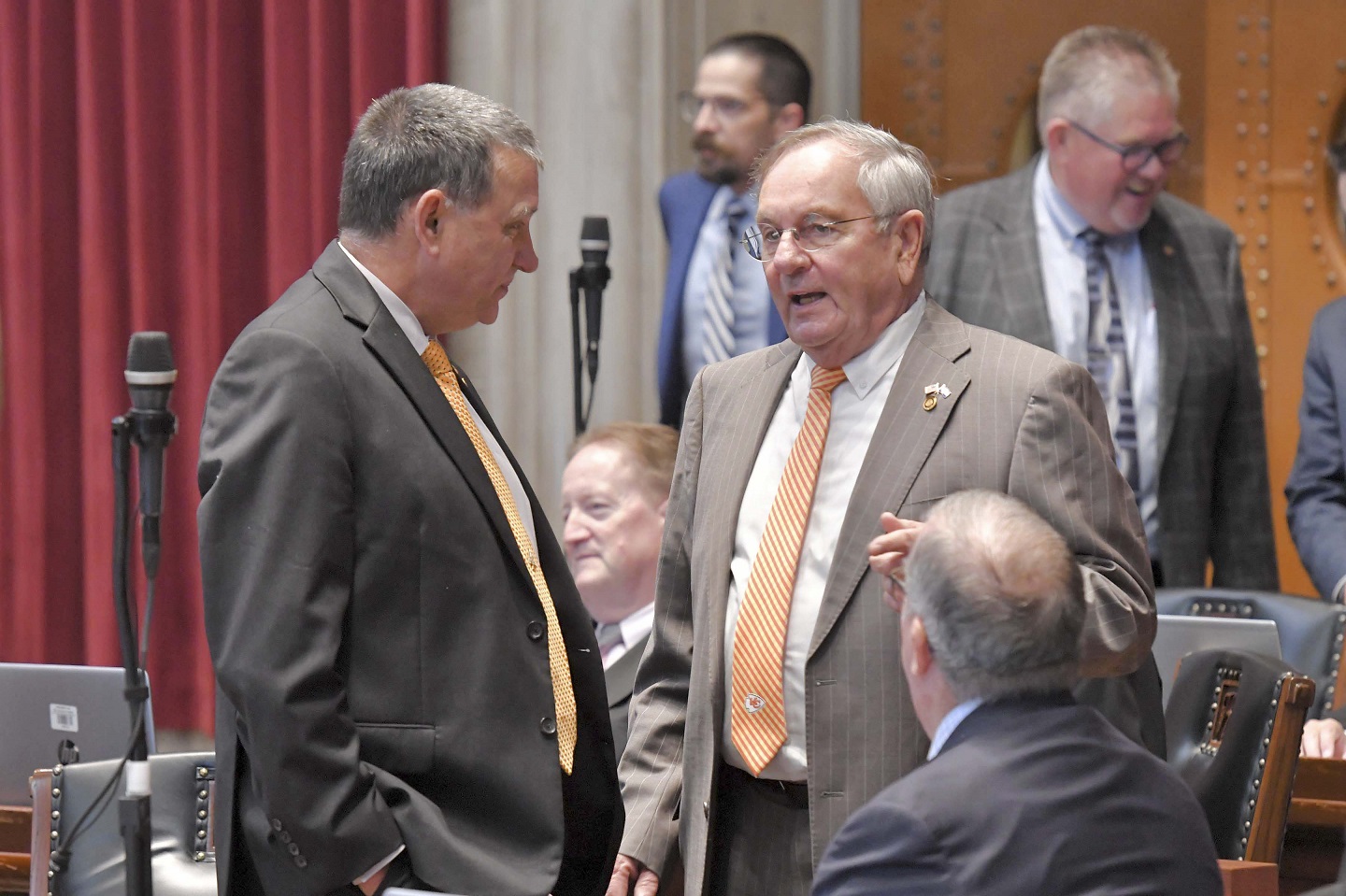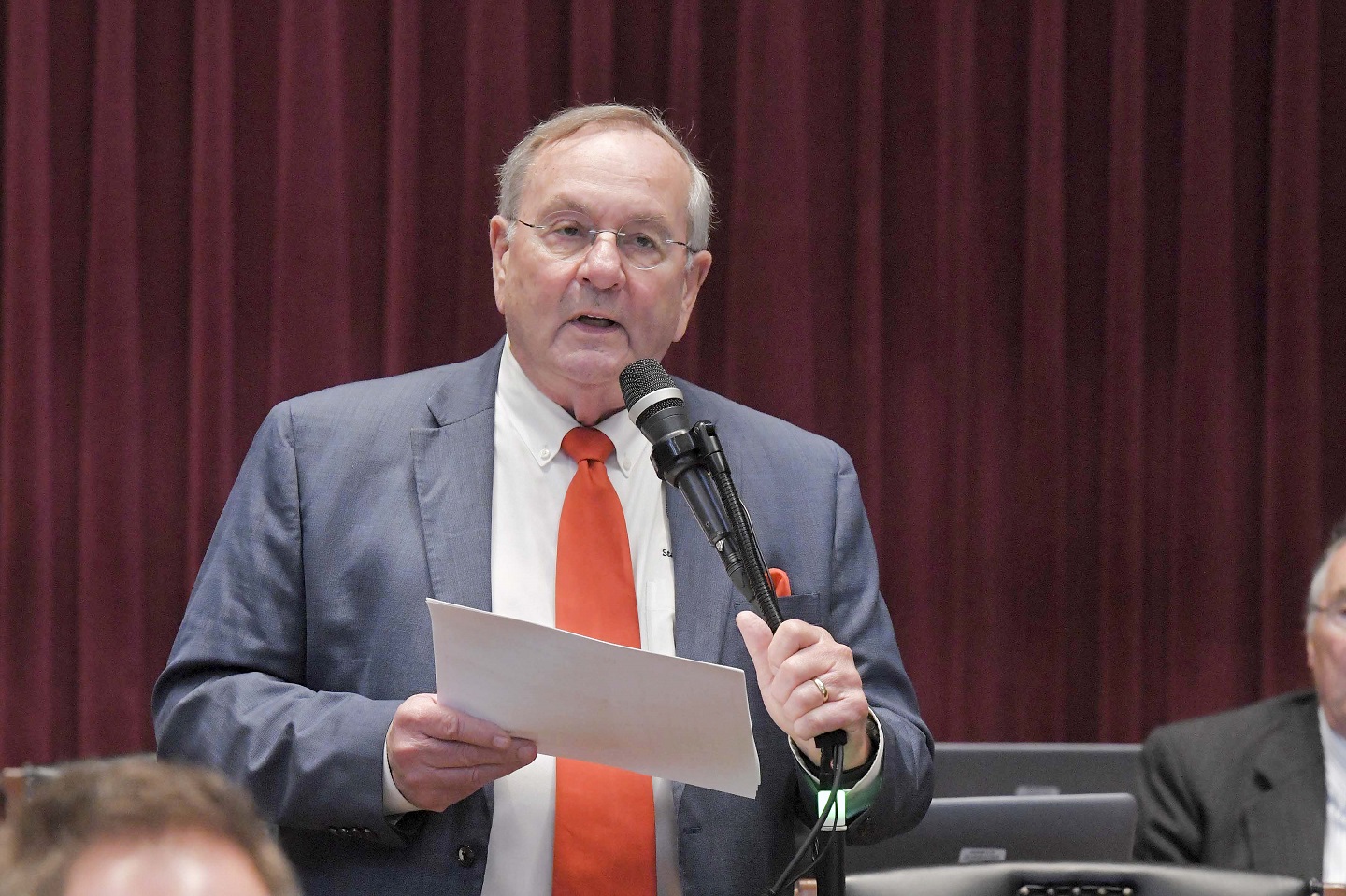An effort to decrease the incidence of suicide in Missouri especially among veterans, one that has long been a top priority for one House member, is at last on the governor’s desk.
The legislature approved two bills containing Jefferson City Representative Dave Griffith’s (R) plan, one he has proposed for four years. If signed by Governor Mike Parson (R), it require the Missouri Veterans Commission to come up with recommendations on how veteran suicide can be prevented; and to report annually on new recommendations and on the implementation and effectiveness of state efforts.
The standalone version of his bill never received a “no” vote at any step of this year’s legislative process.
In Missouri suicide occurs among the veteran population nearly twice as often as in the rest of the population. Griffith said this effort is all about reducing that rate, ideally to nothing.

An already personal quest becomes more personal
Griffith, a U.S. Army veteran, has made veterans’ issues his top priority throughout his time in the House. In dealing with this issue, he has talked to people who have survived suicide and to families of those who have died by suicide. Then last year, one of his close friends died by suicide.
Ever since, he has kept on his Capitol office desk the last letter that friend sent him.
Griffith told this House Communications staffer, “When it happens to [someone you know], you look through a different lens than you ever have before. Somebody you knew, somebody you sat as close as we’re sitting today and talking and had a conversation with, you shared a beer over it and you’re talking about your time in the service or what you did, and then two weeks later they take their own life, and you’re sitting there thinking, ‘I didn’t have a clue.’”
The functional effect of the legislation
A chief function of Griffith’s legislation is to make sure that the data that is gathered about veterans suicide, of which there is a great deal, is compiled and made available to those concerned with the issue.
“We have hearings and we have meetings and we collect data and we collect information, but, where does it go? What do we do with it?” Griffith said. “That next step needs to be taken where we’re getting information out to the American Legion, the VFW, the Marine Corps League, the DAV, we’re getting information out to those organizations where they can start helping those veterans.”
He wants to ensure that that information is being utilized as effectively as possible to improve efforts including outreach, treatment, and even identifying those at risk of suicidal ideation.
“There’s some things you can look at. Your MOS, your military operating service, what you did; how many times you were deployed; where were you deployed; how many times were you in combat; how many times did you receive fire, you felt your life was in danger; where are you from; how old are you? I think there’s some data that … these are things that we need to look for,” Griffith said. “We also need to take into consideration that somebody [who takes their own life] may not have ever been in combat. They may have just been in-theater … just in the surroundings of it, just being in a place where you hear bombs going off, when your building is shook by incoming mortars.”
Griffith is pleased to note that the Veterans Commission has already started implementing some of what the bill requires.
The goal: to help all who need it
Even though the focus of his bill is on veteran suicide, his concern is for suicide and related mental health issues throughout the population.
“When I began this journey four years ago … my hope was, is, that this would be a springboard to conversations outside the veteran community, outside the military community, to one that is really in the civilian population as well.”
He has talked numerous times in the past four years about tragedies that play out too often. Prominent for him is the story of one child from near his district who died by suicide in recent years.
Perspective born of experience
Asked whether he wishes a similar focus on mental health had been in place when he was in the military, Griffith thought back to his time in the 8th Special Forces Group as a Green Beret. Many of the missions he participated in during his service in Vietnam were classified, and that limited how much he could talk to anyone about what he experienced.
Especially with the Vietnam War, he said, conflicts awaited soldiers when they returned home.
Griffith said he has dealt with his pain by compartmentalizing.
The message this legislation sends
Aside from the functional effects of his legislation, Griffith said the fact that he proposed it and the fact that it has consistently received unanimous support send a message to veterans. He wants them to know that they are valued.
For those who care about veterans and others dealing with mental health, Griffith has heard time and time again from experts that societal stigmas are the a large part of what must be overcome. Those struggling are worried about what will happen to them if they seek help.

Most Missourians likely know someone who is struggling with mental health issues, even if they don’t know it. Griffith hopes that though efforts like this legislation, more people will look into what they can do for themselves or for someone else.
Griffith’s proposal reached the governor’s desk as a standalone bill in House Bill 1495, and as part of Senate Bill 912. The governor can choose to sign either or both bills into law, veto them, or allow them to become law without taking action. Griffith anticipates he will sign his proposal into law.



